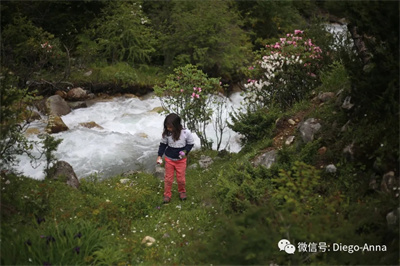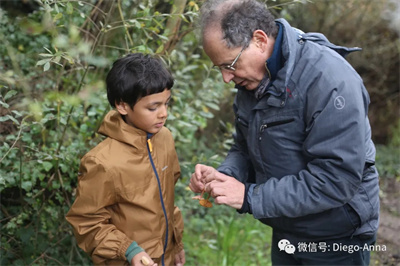【生態良知教育】 Eco conscience education 連載四
連載四
編者按:
每個人都有自己喜歡的生活方式, Diego 和 Anna很幸運,因為他們有著共同喜歡的生活方式。編者認為,這種生活方式給他們帶來的最大好處就是:“擁有整個世界”不再是一句空談。諾大的世界就是他們的家,他們遊歷八方的經歷所產生的各種感受、世界觀、人生理念或許是顛覆性的,且極具震撼力。澳門導報希望把他們的經歷分享給廣大读者。(人物介紹及完整内容,請掃描本文下方二維碼進入官網閱讀)
作者:Diego and Anna
來源:異域之河

我們在散步的時候該做或不該做什麼?
這種時候,我們要重視周圍的所有事物。一切絕對都是有價值的。螞蟻、蝴蝶、樹葉、風的拂動、蜜蜂或鮮花,石頭...... 我們得和小朋友們分享這些自然的奇跡,並鼓勵他們提出各種問題。比如,為什麼蜜蜂會活躍於花叢中? 石頭是怎麼形成的?如果沒有樹怎麼辦等等。用眼睛看,用手觸摸,用鼻子嗅,以及向大自然提出問題都是極其重要的。這樣能促使我們熱愛大自然,並因此珍惜它,保護它。
其次,我們散步時當然也要尊重自然。不亂扔垃圾,試著不打擾動物,不拔起植物。尊重是用簡單語言傳授的,尤其是通過以身作則。
And what to do or not to do during those walks?
During those moments we have to value what surrounds us. Everything, absolutely everything is worthy for us to marvel, to observe it. Ants, butterflies, leaves, the movement of the wind, some bees or some flowers, some stones… We have to share that wonder with the little ones, and invite them to ask questions and then find answers together. Why does the bee walk on the flowers? How were these stones formed? What if there were no trees? Etc etc. Looking, touching, smelling, and questioning the nature that surrounds us is extremely important. That behavior invites us to LOVE the nature, and therefore value it, and protect it.
And obviously take a mindful walk. We will not throw garbage on the floor. We can explain why it is important to keep clean around us. We will try not to disturb the animals, not to up root the plants. RESPECT is taught with simple words, and especially by example.

另一方面,除了尊重之外,我們還要教育孩子們不畏懼大自然。
因為恐懼會帶來毀滅。所以,我們必須擺脫籠罩心頭的陰影。因為如果我們害怕蒼蠅、蜜蜂、蛇、水、石頭和樹木,即便我們主觀上不想如此,我們還是會把這種害怕傳遞給孩子。我們必須讓孩子在“不受控制”的環境下自信地前進,而不是處於一個“消過毒的,無菌的”所謂“安全”的地方。讓他們被淋濕,爬上樹,接近蜜蜂,以一種合理的方式表達危險。比如你可以說“如果你沒有打擾蜜蜂的話,它是不會叮你的”。蜜蜂是植物傳播花粉的必需品,我們必須“尊重它”。或者家長也可以說,“那條蛇沒有毒,不用害怕。它吃老鼠,並保持著自然平衡”。在紀錄片、百科全書、講座以及遊戲的幫助下,我們更加瞭解包圍著我們的一切。而隨著瞭解的增多,沒有來由的恐懼也在消失。如果孩子感受到了愛、尊重和對自然環境的信心,那麼他/她自然會知道如何與自然相處。
On the other hand, beyond the respect, we have to teach the little ones not to be afraid about nature. Because the fears bring destruction. And there, once again, we have to shake off our old ghosts. Because if we are afraid, afraid of flies, bees, snakes, water, rocks, trees, even though we don't want to, we are going to transmit it to the kids. We have to let the child advance confidently in that "uncontrolled" environment, not "aseptized" place. Let it get wet, climb the tree, get close to the bees, etc. Convey dangers in a rational way, for example “the bee doesn't want to sting you, and if it doesn't feel threatened, it won't do anything to you. The bee is essential for plants to make babies, we have to respect it”. Or “that snake has no poison; there is no reason to fear. It eats rats and allows a balance in nature ”…. With thehelp of documentaries, encyclopedias, talks, games, we are learning about what surrounds us. And thus, knowing, the irrational fear disappears. If the child feels love, respect and confidence towards the natural environment, then he or she will naturally take care of it.







